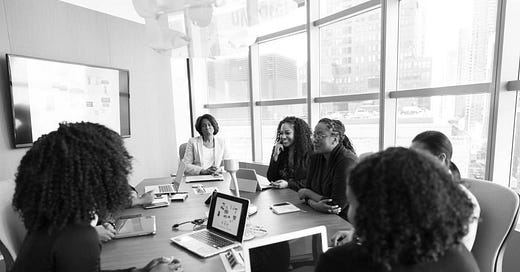Dear Research Network, Colleagues and Friends,
I hope you’ll connect with the video we’ve uploaded below. It captures a raw, unfiltered truth that too many of us live with every day. In it, Jasmine Crockett—a brilliant, accomplished, and qualified Black woman—lays bare an ugly reality: no matter how much we achieve, how hard we work, or how well we perform, there are still people who will reduce us to their own biases. White men, in particular, often deem her—and others like her—unqualified not because of her credentials or abilities, but because of the color of her skin.
It doesn’t stop there. The damage isn’t just done by those who make these baseless accusations. It’s perpetuated by people who uncritically repeat them, feeding into a cycle of falsehoods and unexamined biases. These individuals may claim neutrality or ignorance, but their complicity is no less harmful. They share the blame for a system that actively undermines Black women and questions their competence at every turn.
This is precisely why Black women often approach the notion of "allies" with suspicion. How can we trust those who profess solidarity while failing to challenge the systems of thought and structures of power that enable this constant belittling of our accomplishments? How can we believe in allyship when those who claim to stand with us allow these narratives to persist without question? Jasmine Crockett’s story isn’t just her own; it’s emblematic of what so many of us face daily in workplaces, institutions, and society at large.
White supremacy is not just an overt act of hatred—it’s a structure. It’s an ingrained system of undue privilege that operates on a racialized hierarchy, privileging Whiteness at the expense of everyone else. It is why, despite being highly qualified, Black women are still held to impossible standards while being accused of incompetence. It is why society is so quick to dismiss our voices and diminish our worth.
What Jasmine Crockett reveals is more than just the personal pain of being disrespected and dismissed. It’s a spotlight on a larger issue—a deeply rooted social illness that allows these hierarchies of power to thrive unchecked. And until we all start interrogating the stories we hear and the biases we carry, this system will continue to harm not just Black women, but society as a whole.
So, as you watch this video, I hope you’ll do more than just listen. I hope you’ll reflect on the ways these structures manifest in our everyday lives. And I hope you’ll join us in not only calling out these injustices but actively working to dismantle the systems that allow them to persist. Jasmine Crockett’s voice is vital. It’s time we all truly hear it.
Dr. CL Nash, the Misogynoir to Mishpat (M2M) Research Network © 2025




